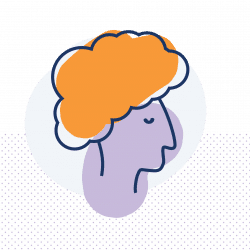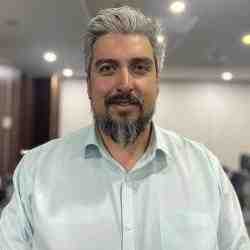Einführung
Hannah Song is leading a campaign to rebrand the longsuffering people of North Korea, not only in the oppression by the North Korean regime, but also the structural bias worldwide.
Die neue Idee
In the past seven decades as a divided nation, the international community's overruling perception concerning North Korea had been exceedingly limited; A nation of famine and destitution, a place where individual rights and human rights were suffocated by three consecutive generations of oppressive nepotism. Even the unprecedented degree of human rights advocacy and humanitarian aid toward North Korea throughout the two recent decades largely failed to shake off the stereotypical frame and was very wanting in terms of overall impact. What the international community must not overlook, however, is that the change grows from the seeds sown by people and that North Korea is no exception. Previously, the North Korean people were perceived through a frame that designated them as victimized non-actors; essentially denying them of perceived potential for change. However, Hannah Song chose to see things differently. She chose to approach the issue by encouraging the international community to see North Koreans as peers and empathize; ordinary people like the rest of the world, people who take on new challenges, fail and get back up.
To that end, Hannah Song established LiNK (Liberty in North Korea), which takes the approach of sidestepping the surface phenomena to directly address" hot spots of change". Jangmadang Generation refers to a demographic familiar with the offerings of the Jangmadang, the North Korean black market (they account for 44% of the overall population). They grew up in an environment fundamentally dissimilar to that of their earlier generations. They are notably more exposed to change than the average North Korean and have great potential for precipitating change. LiNK seeks to empower them to spread positive influences throughout the North Korean society. LiNK works together with young North Korean defectors in the organization's efforts to rescue and resettle refugees, a system that raises the degree of influence that the refugees can exercise deeply into the North Korean society.
Hannah focused her efforts on the mainstream international media with their considerable influence on opinions regarding North Korea. She focused her efforts on journalists rather than lobbying politicians as most North Korean human rights organizations had done. She sought to bring change in the way North Korea was presented in the media, through cooperating with international journalists and film producers. LiNK reached out and developed strong relationships with members of the foreign press who covered North Korea, as part of its goal of remolding decades of hardened stereotypes about it. LiNK established a position as a reliable media-partner, working proactively to provide journalists with the most up-to-date and easily digestible information on the socio-economic changes in North Korea, while also liaising sources that were able to provide information on the changing lives of the North Koreans. Such involvement by LiNK led to an increased number of international media outlets shifting their focus away from the "fixed regime and the suffering people" and toward a "possible change and the resilience of the North Korean people". Since 2012, the new perspective as proposed by LiNK was featured over 500 times on outlets such as CNN, the Guardian, BBC, NPR, and KBS.
To further spread this new perspective, Hannah positioned LiNK as an inclusive platform for solving North Korean issues, open to even the most average citizen. LiNK identified the younger post-Cold War generation, unaffected by political frames or biases and capable of seeing as-is the changing society and people of North Koreans, as envoys to their each respective community. The organization launched a campaign targeting the Millenials, producing imagery using the latest designs and technologies, marketing through social networking platforms and digital channels. Through the newly paved communication channels, LiNK successfully reached Millenials around the world. 330 regional chapters were established across 17 countries, including those in the North Americas, Africa, and the Middle East. Empowered by the marketing tools offered by LiNK, young people involved themselves in networking, on/offline campaigns, events, and conveyed messages that highlighted the resilience of the North Korean people. The campaign successfully reached 270,000 participants and raised 6 billion KRW (about 5.5 million USD) for the defector rescue and resettlement aid fund.
Leveraging her achievements with the international community, Hannah opened a LiNK office in Korea, the most biased nation in terms of its perception of North Korea. Utilizing all its accumulated insight and knowledge, LiNK continues to seek ways to contribute towards a more empathetic society. In particular, LiNK is counting on the Millennials to buffer future North-South relations, and as such has been expanding its cooperative efforts with schools and support institutions for the younger defectors, opening more channels for the young people of both countries to coalesce and see eye-to-eye.
Das Problem
North Korea being one of the most isolated societies in the world has been a challenging obstacle for ingress by civic organizations. The dictatorial regime oppressed the basic rights and freedoms of the 24 million North Koreans, detaching them from the rest of humanity and subjecting them to famines and other unspeakable sufferings. Open communication between even next-door neighbors is not free in North Korea today, and the travel, access to the internet, and conversations with foreigners are all limited and under close scrutiny. Complaints and suspicions about the regime are strictly taboo. As such, even the most capable and experienced civic organizations are faced with multiple challenges when seeking an ingress path toward the world's least accessible and understood and most suppressed people.
The international press often portrays North Korea's leadership as an annoying bully, while its people are portrayed as brainwashed zealots or pitiful victims of crushing oppression. While the sufferings of the North Korean people elicit a sympathetic response, it is also true that the majority of people believe that the North Koreans were somehow different, destined to continue suffering by the cruelty and oppression of their rulers. While oppression continued in North Korea, a great deal changed in the outside world. The Cold War era ended, as did supplies for food and armaments. In 1994, North Korea's economy took a steep dive and the people suffered a severe famine, leaving many no choice but to risk their lives crossing the border, or die of starvation. Since that famine, much has changed in North Korea. Due to the events following the famine, North Korean defectors were able to keep in touch with family members who remained in the North, talking over the telephone, sending money to help with living expenses, and sending parcels of goods. About 30,000 North Korean defectors live in Korea. Other defectors have settled down in other countries such as China, married, and found jobs. According to a survey, North Korean defectors send home somewhere between 15 million and 20 million USD annually. Before the economic downturn, factories provided food stamps that laborers could exchange for food exclusively at designated places, but when the economy turned sour, food stamps and the exchange system ceased to exist. Soon after that, it became common for North Koreans to purchase food supplies near the Chinese border or in markets. The influx of external information has also steadily increased, where cell-phone usage has become more common, and South Korean television shows are smuggled in on USB memory-drives. To put simply, the market economy and the free-flowing distribution of information has slowly but surely been permeating into the North Korean society.
Another point of note is the generational change in the North Korean society. The youth are open to foreign cultures. They enjoy watching South Korean drama shows, listen to music from the Western world, and when the dictatorship presents them with what they are to believe about the cultures and societies of the outside world, the youth do not take it in at face value. Hannah is confident that dialing down the overtly political and diplomatic undertones and putting greater weight towards the people and possibility of change would earn more interest and support from institutions and people around the world, and in the long term contribute to the liberalization of North Korea's people.
Die Strategie
Hannah Song focuses on two areas: working directly with the defectors from North Korea, and changing how the world perceives North Korea.
The popularized image of North Korean people are often created and perpetuated by the media. Hannah firmly believes that changing how media depicts North Korean would lead to increased support for them. Depicting North Korea through the abnormal dictatorial icon of "Kim Jong-un and his nuclear weapons", displaces that reality from our everyday lives, and creates an illusion that the North Korean situation is an unsolvable challenge. Thus by realigning the press' attention to the North Korean people's strong spirit, toughness, and resilience against the countless challenges they faced, LiNK was able to show that change indeed begins with people, and that those people could use help from the civic sector of the international community. LiNK has been successful in engaging prominent foreign press members, film producers, and policymakers, and enabled them to not only change how North Korea was presented in the press, but also to change how people perceived North Korea. Outstanding analytical capabilities and media-savviness are a rare combination in the academic surrounding the subject of North Korea. LiNK was not confined to only the North Korean region when it came to gathering important information. The organization collected latest intelligence on the latest regional changes, and leveraged their media capabilities to provide the foreign press such as Reuters, with helpful information. LiNK effectively lobbied the media and influenced media coverage.
In addition to the top-down strategic approach through international media, Hannah worked with the Millennials (effectively Generation Y, born between early-1980s to early 2000s) in a bottom-up approach. It is a citizen participation approach that empowers the average youth from existing North-Korea related organizations as problem-solvers. LiNK supported middle school, high school, and college students forming regional chapters (Rescue Teams) and raising funds for defectors, spreading the "people-centered" perspective through their communities. Through international campaigns online and offline, and road trips, LiNK made a strong appeal across borders to tens of thousands of people around the world, particularly the younger generations. through the grassroots movement, they met over 270,000 individuals, including the US and Canada, of which 15,000 volunteered through online channels to donate, provide volunteer work, staff events, and participate in the campaign. Their cooperation has cumulatively raised about 5.5 million USD, put towards LiNK activities and providing aid to the North Koreans. Not only is this the greatest amount raised by an organization for North Korea, it is also unprecedented in terms of its activity participation. Funding from the LiNK chapters are 100% exclusively used to rescue and resettle North Korean defectors, and strictly adheres to the principle of never imposing any conditions or require amounts from defectors who need help.
Like the changes accomplished through working together with young men and women around the world, LiNK recognized the importance of the Jangmadang Generation (29 years and younger North Korean youths, accounting for 44% of entire population) within North Korean society. They have never received food aid from the government, nor have they any fond memories of a stable, dictatorial regime. They are greatly affected by exposure to a market economy, technology, and foreign cultures. Hannah thinks that this phenomenon will play a crucial role in triggering significant changes in North Korea. This is because when defectors send home money to their families, it becomes seed money, capital for a small business. Before this phenomenon, social oppression meant that entrepreneurial spirit was stifled, but the economic collapse and famine in the 90s sparked the growth of an underground economy. The underground market has grown to an extent where even the government officials responsible for locking down any such transactions can be bribed. The socio-economic system in North Korea has changed significantly. Therefore, greater the success the defectors enjoy in resettling outside North Korea, greater the impact they have on their families living in North Korea. For example, if a defector resettled in South Korea has 10 friends and family back home, and there are 30,000 known defectors in South Korea, half of the defectors would have a certain degree of effect on 150,000 people in North Korea. Indirect, but a powerful change nonetheless. The example may have oversimplified the time and scope of changes involved, and measuring exact numbers is obviously difficult, but LiNK is certain this approach will change the way people in North Korea think.
In that sense, Hannah has worked with the rescue and resettlement programs for the defectors, not only from a humanitarian standpoint, but also recognized their potential to be the primary agents of change. North Korean defectors to China are generally vulnerable to exploitation or even repatriation against their will. LiNK supports those refugees in their safe resettlement in South Korea or in the US. Thus far, LiNK has rescued and helped resettle 618 defectors from North Korea, often parents accompanied by their children. Among them, 82 had been victims of human trafficking. LiNK maintains religious and political neutrality, and does not set any conditions in providing the money necessary for a defector's rescue. Furthermore, in supporting the successful and stable resettlement of the defectors, LiNK directs a great deal of attention to their education, leadership, personal growth, and career development, seeking ways to ensure that their individual potentials are realized. Hannah's goal was to rescue 200 defectors in 2017, and with their resettlement support program expanding in size, she is piloting a program for building economic capacity. LiNK provides resettling refugees with orientation to support a stable resettlement process and harness potential, with particular focus on building a network to serve as a foundation of support and social capital. LiNK is currently reviewing plans for summer camps where college students from both Koreas and around the world are invited to learn together, share, exchange, and take action. Her team is currently working to quantify the degree in which long-term resettlement support can impact the libertization of North Korea.
LiNK is headquartered in Los Angeles, USA. The Korean branch opened 5 years ago. Hannah Song works with 20 full-time employees, and LiNK operated on an annual budget of about 2.56 million USD in 2016, 23.3 million USD in 2015, and 23.1 million USD in 2014.
Die Person
Hannah Song was born in Michigan and raised in New Jersey, USA. Growing up in an immigrant family, she had the full support of her parents who wanted her to be well adjusted to American culture. From her early childhood, she was strong willed and active. She played the violin, read voraciously, and enjoyed sports. Her mother was notably an independent, resilient woman with self-confidence, self-motivation, and strong will. Life was challenging as Asian immigrants in the '80s adapting to a new way of life, but Hannah's parents led by example and taught their three children to find their own paths, and to pave the way if necessary. By the time Hannah was 10, she would make discount coupons for babysitting services and place them in mailboxes around the neighborhood. She later expanded her business ventures to include piano lessons. Her home environment and upbringing set a foundation for her.
While attending New York State University, she moved into an apartment near Wall Street with a friend. On September 11, 2001, when the North Tower of the World Trade Center was hit, Hannah was not too far away from ground zero. She saw the South Tower being hit with her own eyes. When the two towers collapsed soon after, covering several blocks in dust, Hannah was still there. She had to run as hard as she could to get away from the smoke and debris. For the following weeks, Hannah stayed in New York and volunteered for whatever help she could give. The tragic event left a strong impression in her heart; life was ever so fragile.
Hannah Song's grandmother left Pyongyang 70 years ago during the Korean War. She left behind her husband and her two children, completely unaware that she would never again see them. After the war was over and Korea was divided into the North and the South, her grandmother settled down in Seoul and started over with a new family. Hannah's mother was born immediately after the armistice, and immigrated to the US in her 20s. For Hannah, this generational sequence of events led to an oddly relevant connection. Her grandmother had never mentioned anything about her former life in North Korea. Yet when Hannah opened up a book by a North Korean defector on living through unspeakable conditions as a family in a political prison camp, something grasped her interest. It was her grandmother's homeland after all, and with each page she turned, she discovered the North Korean issue was far more complex than it initially appeared. Through research, she found that the amount of support to this North Korean issue was disproportionately small to its severity and scale, and began looking for ways in which she can take action as an American with Korean heritage. At the time, Hannah was a branding strategist at an ad agency, but the book encouraged her to join a student organization called Liberty in North Korea and to volunteer her efforts there. In 2008, when the student organization's activity funds were near depletion, Hannah Song left her job at the agency and took on a new role as the CEO of LiNK and revitalizing the organization.




